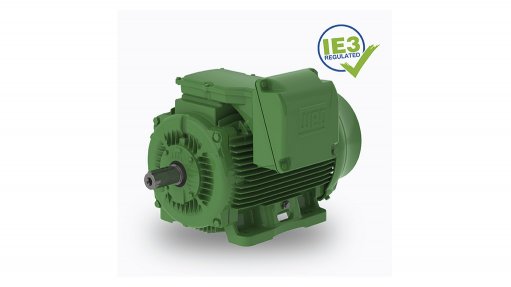
FULL OF ZEST The company is confident that implementing a minimum efficiency performance standard will have significant benefits for South Africa
Regulating efficiency in motors by adopting a minimum efficiency performance standard (MEPS) for electric motors can help stabilise South Africa’s power supply, and mitigate the risk of load-shedding.
Zest WEG Group rotating machines manager Fanie Steyn highlights that a MEPS would significantly reduce the peak power demand on the national grid. Importantly, this could be done at no cost to government and would result in substantial savings in electrical energy costs.
“The MEPS would phase out the least efficient electric motor classes by setting a minimum standard for the efficiency of motors imported and sold in South Africa,” he says. “The essential challenge now is that about 280 000 electric motors are imported each year, many of which are low efficiency motors rated at International Efficiency (IE) 1 level as standard.”
Steyn notes the great strides recently achieved in the efficiency of electric motors. Energy savings of between 2.1% and 12.4%, depending on the individual power rating, can be made by converting from a standard efficiency IE1 motor to a premium efficiency IE3 motor. The capital cost differential is slight and is quickly recouped by lower operating costs.
“It is estimated that as much as 30% of all energy produced globally is consumed by electric motors,” he says. “It is therefore easy to see why improving motor efficiencies has a huge impact on national energy consumption.”
It is significant that more than 42 countries already have MEPS in place. These standards apply mostly to three-phase low voltage motors up to 375 kW capacity. The MEPS is applied at import stage, so the process would be handled in the conventional manner by customs agencies.
“If the 150 000 low voltage motors entering the country each year were IE3 rated instead of IE1, the national grid could be relieved of about 195-million kilowatt-hours in a single year,” says Steyn. “This means almost three-billion kilowatt-hours over the next five years.”
Further, this would also result in lower carbon emissions from power stations, in line with South Africa’s commitments in terms of the Paris Agreement.
“Implementing MEPS will have significant benefits for everyone,” Steyn concludes.